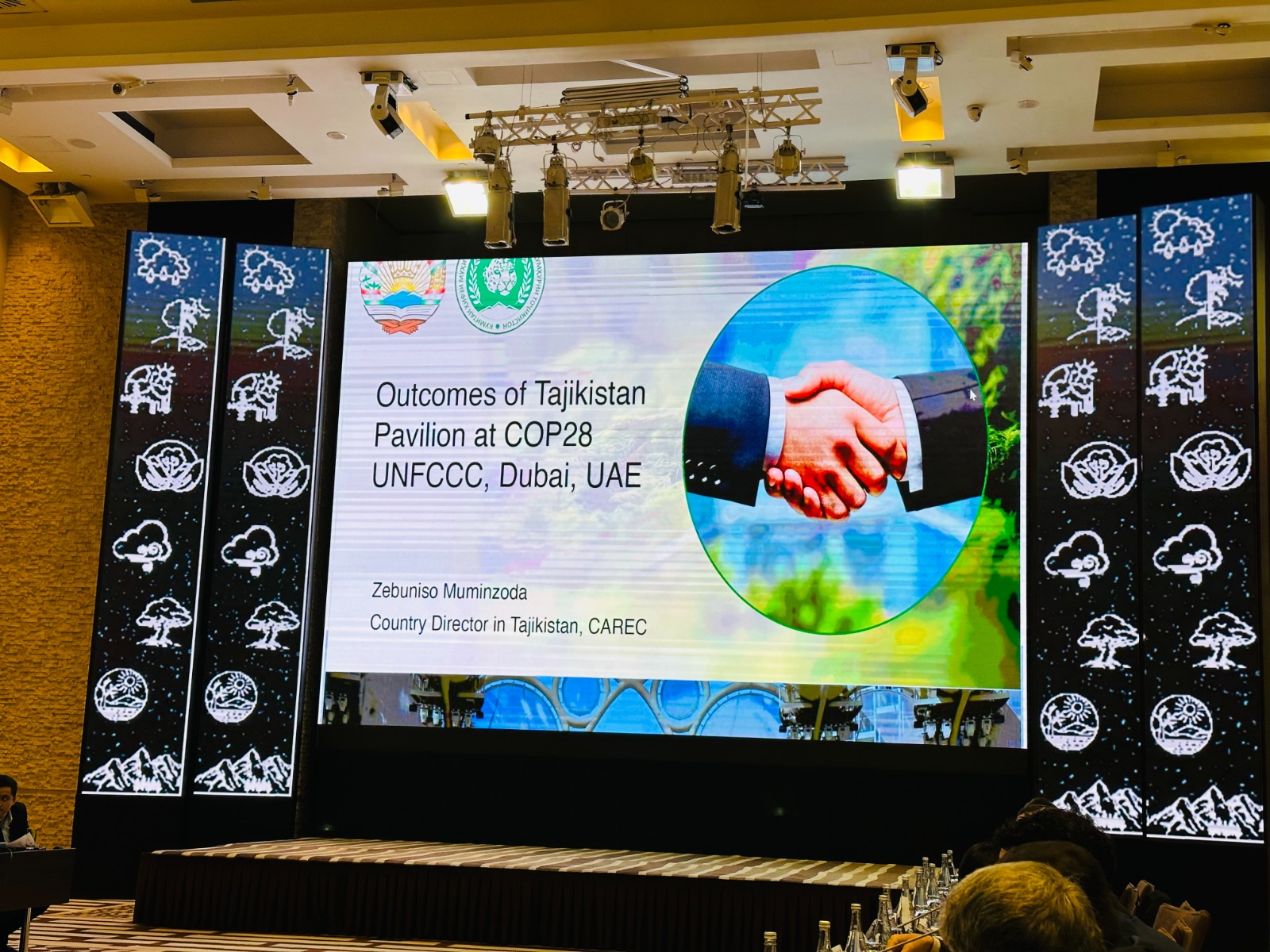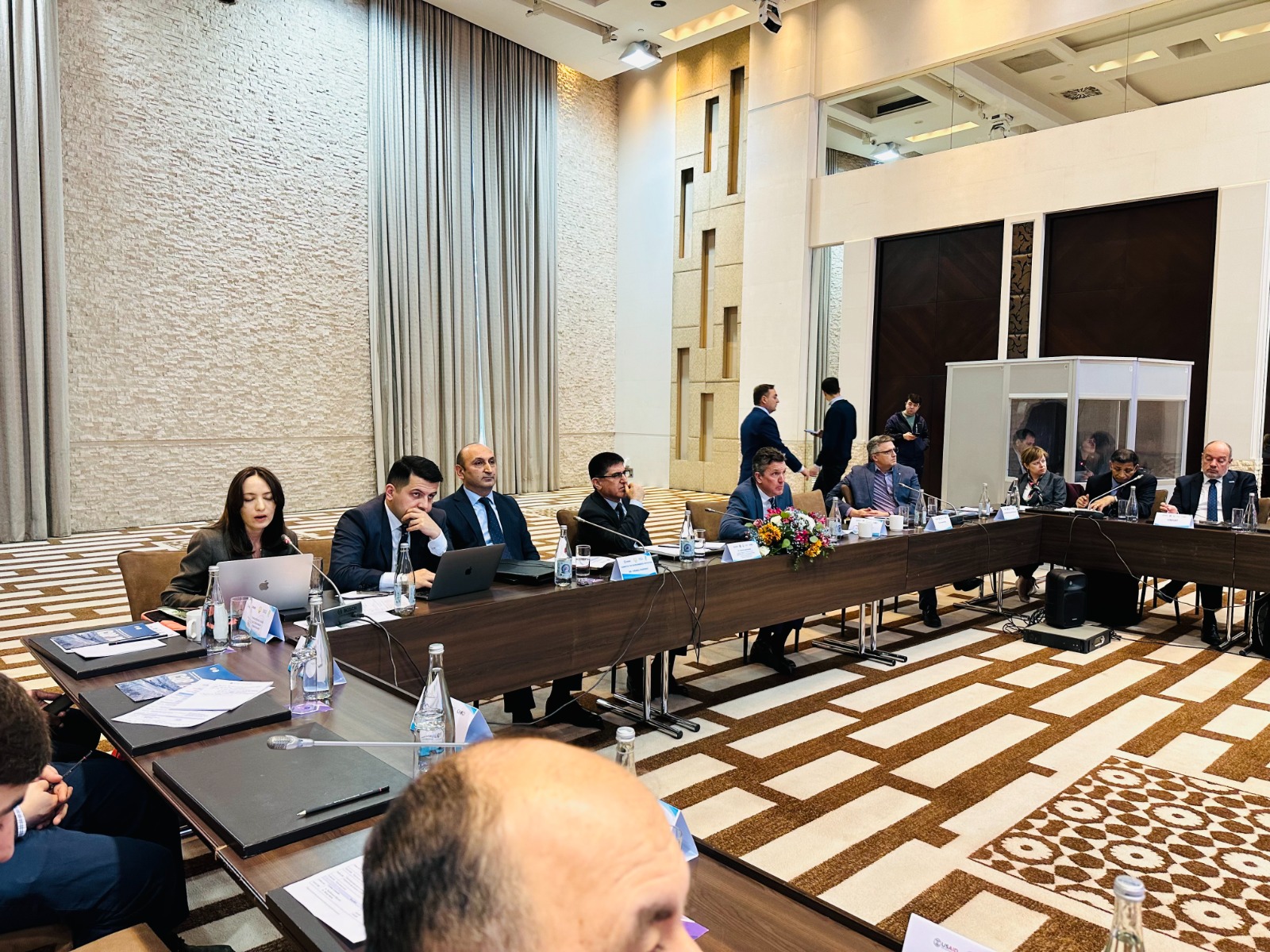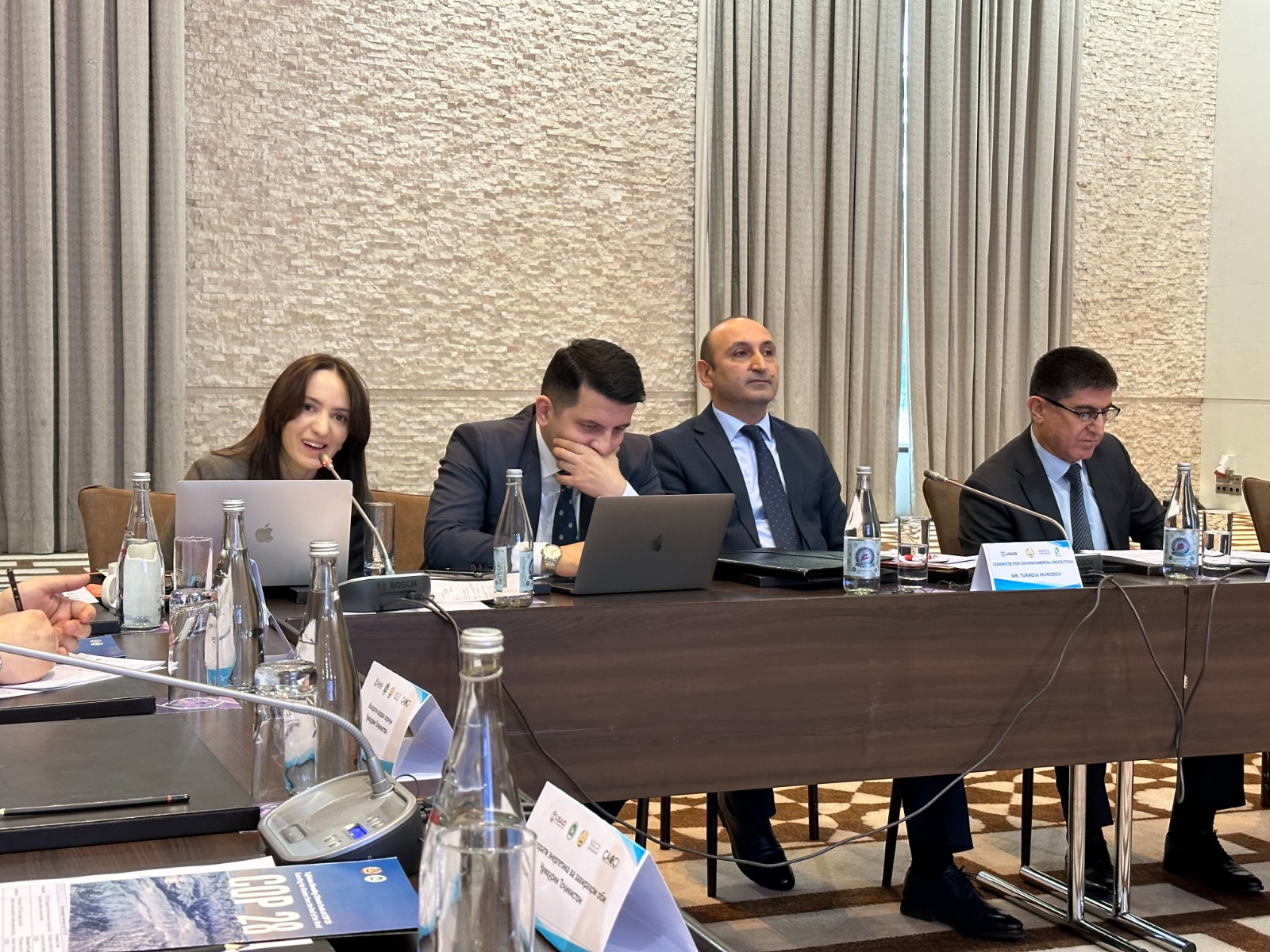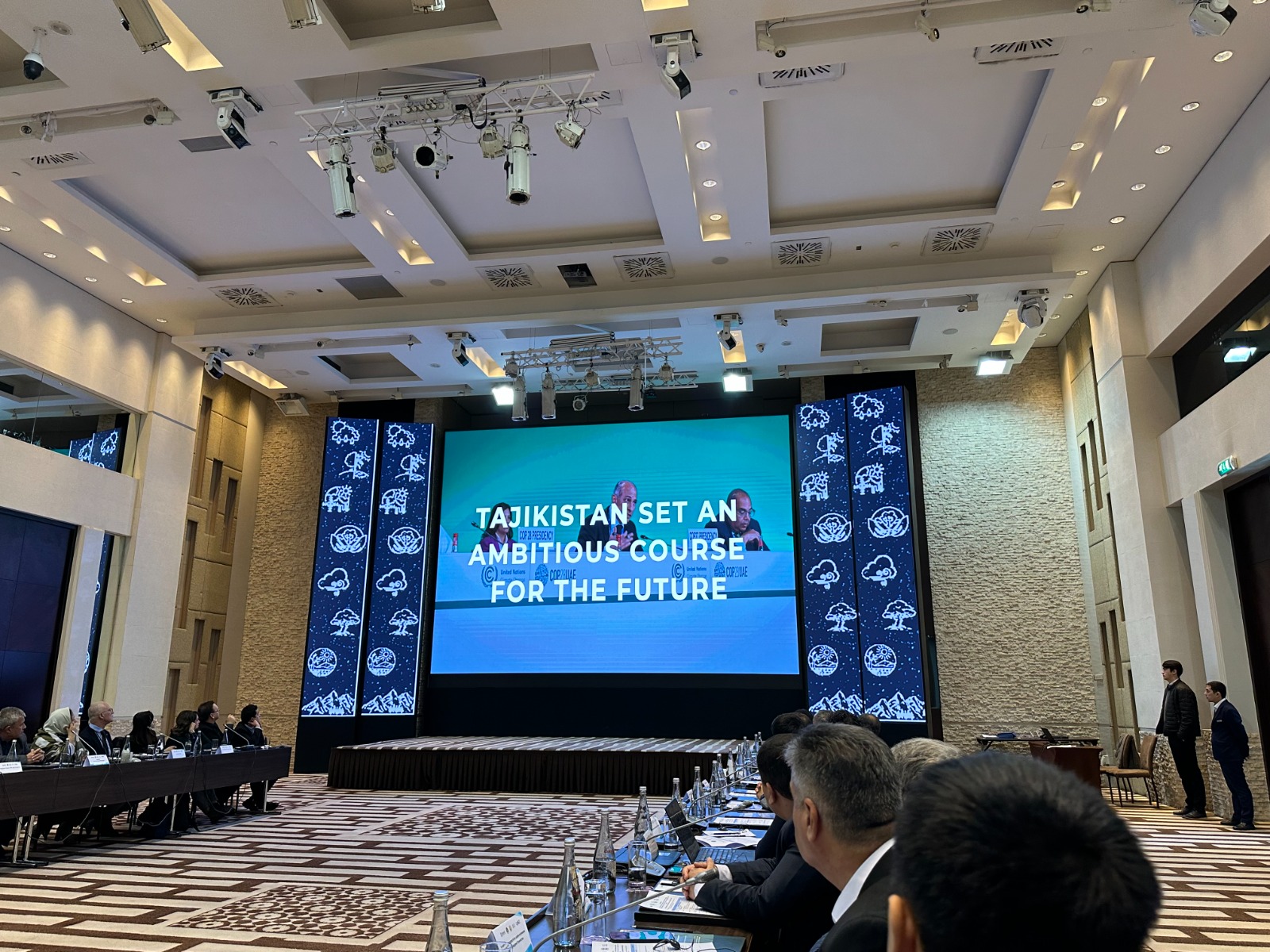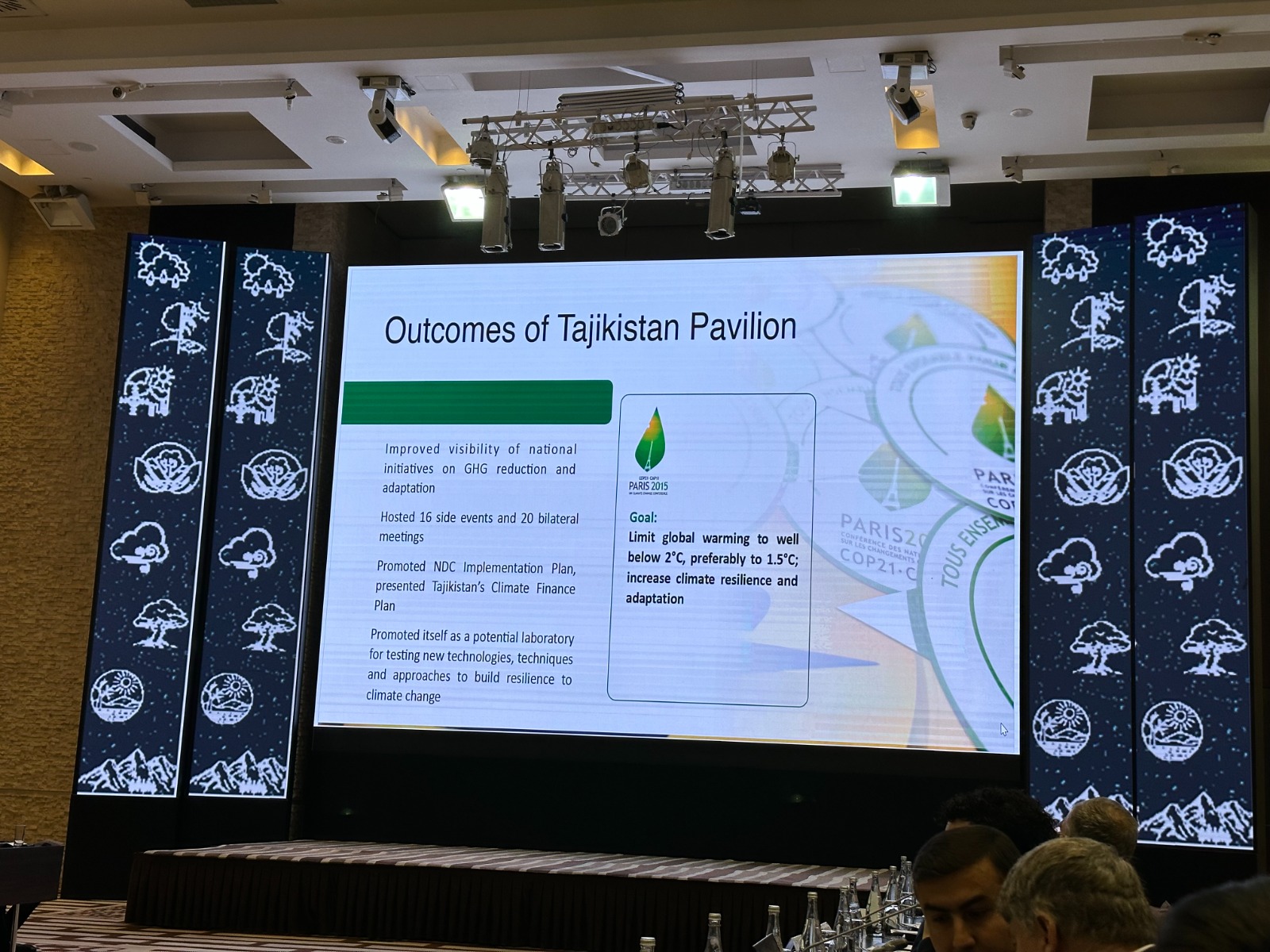The Director of the Country Office of the Regional Environmental Centre for Central Asia (CAREC) in the Republic of Tajikistan Zebuniso Muminzoda reported the results of the work of the Tajikistan Pavilion at the 28th Conference of the Parties to the United Nations Framework Convention on Climate Change (UNFCCC COP28) during the round table entitled “Summing up the results of the UNFCCC COP28”.
Zebuniso Muminzoda noted that Tajikistan's participation in the UNFCCC COP28 covered a wide range of topics, ranging from adaptation to climate change to sustainable development initiatives. A country's contribution to these discussions is essential to address national and global environmental challenges while advancing its socio-economic priorities.
The Committee for Environmental Protection under the Government of the Republic of Tajikistan (CEP RT) initiated the round table conference in cooperation with the U.S. Agency for International Development (USAID) in Tajikistan at the Hyatt Regency Hotel on February 7, 2024.
The roundtable brought together government officials and representatives of international organizations, including the Asian Development Bank (ADB), the World Bank, UNDP, UNICEF, the Swiss Agency for Development and Cooperation (SDC), the German Society for International Cooperation (GIZ), the International Finance Corporation (IFC), the European Union, civil society and the private sector.
They gave a collective assessment of the results of the UNFCCC COP28, focusing on their impact on Tajikistan, and discussed further actions in line with the country's climate goals.
Recall that the President of the Republic of Tajikistan, Emomali Rahmon, took part in the opening ceremony of the Tajikistan Pavilion at the UNFCCC COP28 in Dubai, UAE, on December 2, 2023. Emomali Rahmon stressed that the glaciers melting is one of the key indicators to assess the impact of climate change on water resources. He also noted the great importance of the adoption of the UN Resolution on the proclamation of 2025 as the International Year of Glaciers’ Preservation, which recognizes the importance of glaciers as an integral part of the hydrological cycle and expresses the interdependence of glaciers and climate, environment, human health and sustainable development.
According to Abdullo Kurbonzoda, Director of the Hydrometeorology Agency of the CEP RT, the National Development Strategy until 2030 sets out long-term goals, including environmental sustainability and combating climate change, as an official document. He noted that this strategy provides valuable information about Tajikistan's approach to solving the problem of global warming.
Sino Tohirzoda, Head of the CEP NDC Secretariat, said that Tajikistan is taking part in negotiations on climate finance, technology transfer and capacity building, seeking to provide the necessary support for its efforts to combat climate change.
The ADB Country Manager for Tajikistan Shanny Campbell stressed the importance of establishing the Loss and Damage Fund (LDF) and financing the private sector.
The Mission Director for USAID in Tajikistan Peter Riley emphasized that Tajikistan produces only 0.02% of the world's carbon gas emissions, and this share is insignificant. However, Tajikistan is suffering from the climate crisis consequences more than other countries.
The UNICEF Representative in Tajikistan Arthur van Diesen highlighted the negative impact of climate change on children, especially those living in vulnerable communities. Children are among the most vulnerable groups to the adverse effects of climate change, including extreme weather events, food and water insecurity, displacement and health risks, he said.
Additional information:
Zebuniso Muminzoda, Director of the CAREC Country Office, tajikistan@carececo.org
